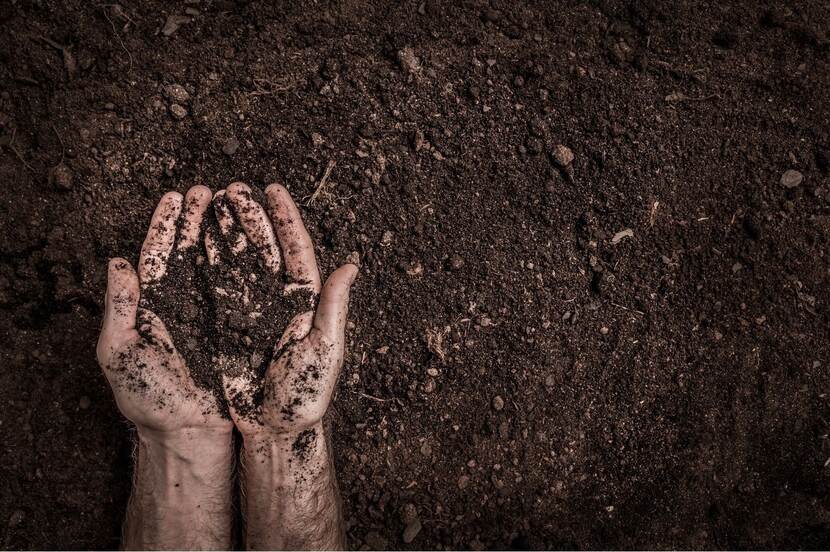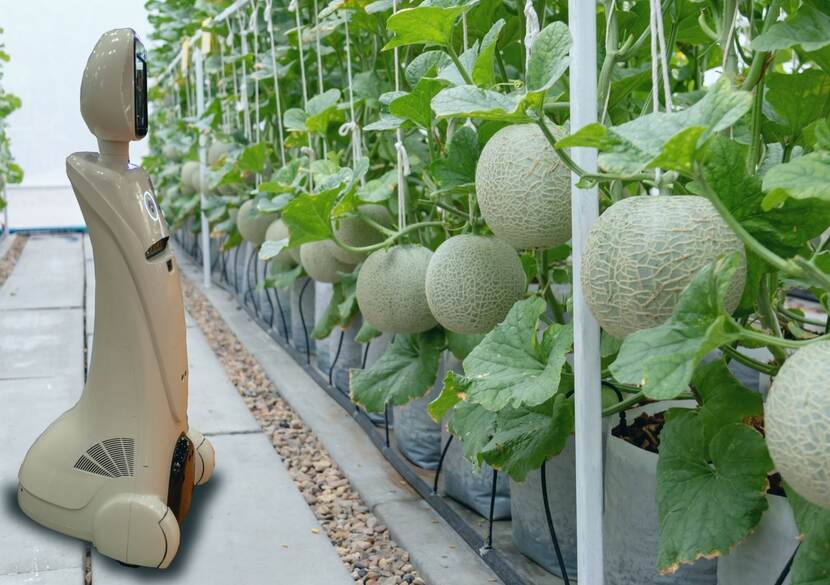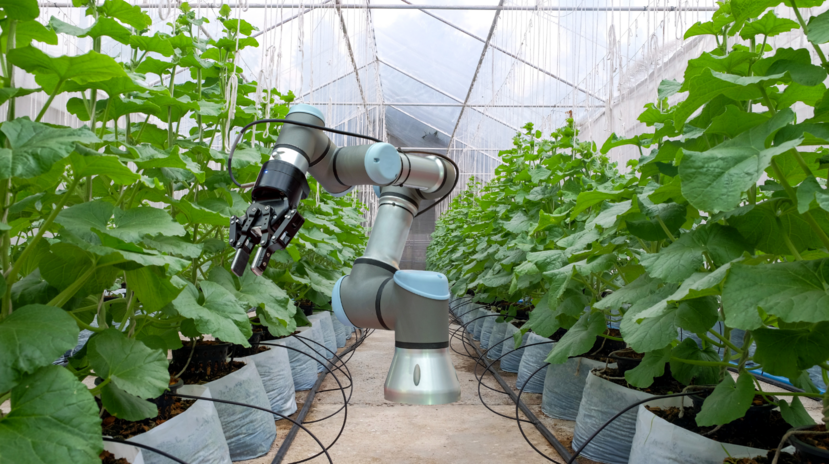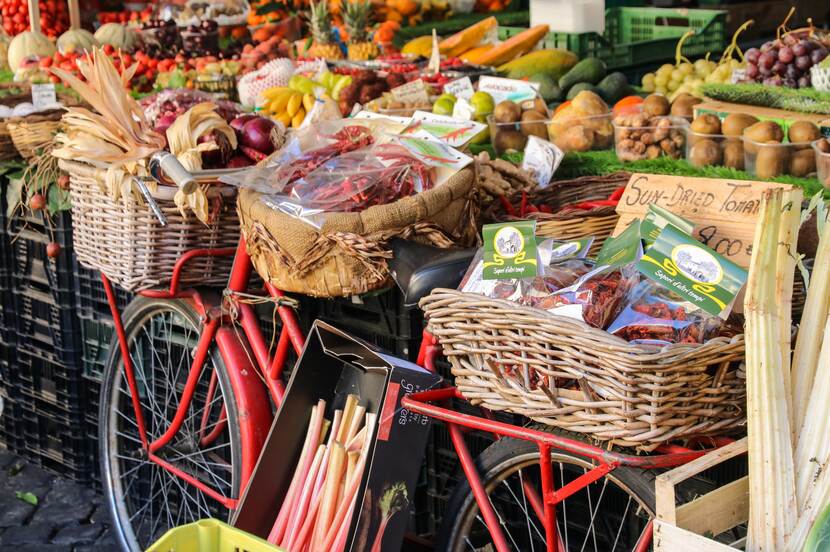Belgium pushes for a nature-inclusive earnings model
Belgium has made significant strides in adopting nature-inclusive agriculture, with both Wallonia and Flanders embracing different models. While considerable progress has been made in terms of biodiversity, soil health, and knowledge sharing, some challenges remain. More efforts will have to be made to educate farmers to provide support. In addition, more investments are necessary in research and development.

Wallonia and Flanders each have their own agricultural model: Walloon agriculture is predominantly extensive, with a strong local market and well-developed organic farming. Cattle farming and arable farming (mainly animal feed) are the dominant agricultural sectors. In addition, Wallonia is strongly focused on France, where nature-inclusive agriculture is already well established, and has a longer tradition of nature-inclusive agriculture than Flanders.
The Flemish model is very similar to the Dutch one, meaning it is intensive, high-tech and export-oriented. It mainly involves fruit and vegetables (both covered and uncovered) as well as intensive pig and poultry farming. Because Flanders is heavily urbanized, there is a lack of farmland. As a result, prices are rising.
Reduction of external inputs
According to statistical office of the European Union Eurostat, Belgium has seen a decrease of 20% in the sale of crop protection products between 2011 and 2020, thanks to integrated and biological control agents developed by Belgian companies. This makes Belgium 5th in the EU in terms of reducing the use of crop protection products compared to 2011. At the same time, the risk connected to the use of crop protection products was 35% lower.
The country's biotech sector has flourished, particularly in Ghent, with several players in research and production of biostimulants and biopesticides research and production. Often, these companies are spin-offs of the Flanders Institute for Biotechnology (VIB) research institute. These companies include Syngenta, Biobest (crop protection and -pollination via insects) and Biotalys (for instance, biological crop protection based on llama blood).

More biodiversity and soil health
To promote nature-inclusiveness, Wallonia and Flanders have widely used methods like green cover crops and crop rotation. Yet, planting hedgerows and creating wood and flower borders still have room for growth. Belgium is promoting mosaic forests while Wallonia is committed to robust forests. Flemish research institutes participate in Interreg programs (interregional cooperation program co-funded by the EU) such as FABulous Farmers and Beespoke for functional agrobiodiversity and seed mix advisory tools.
According to the Soil Service of Belgium, half of all Flemish agricultural land has low organic content. Yet, several carbon farming initiatives are being explored, mostly private ones. Retailers Lidl and Colruyt each have their own projects, and through the Claire (a Flemish carbon platform) companies can offset their CO2 emissions locally by compensating farmers for their climate efforts. Wallonia has a similar platform, Soil Capital, but it mainly operates internationally.
The Flemish government is promoting carbon farming through the Flemish strategic CAP plan and the CarbonCounts LIFE project. In addition, leguminous plant cultivation experiments are also being conducted across Belgium.
Knowledge sharing and research
Several organizations such as Terres Vivantes, Regenacterre, Consortium Agroforestry, and House of Agroecology are helping Belgian farmers transition to agroecology. Wallonia has a network of transitioning farms and a knowledge exchange platform called Terraé.
To show farmers that agriculture and nature can go hand in hand, Flemish agricultural organisation ABS and Flemish nature organisation Natuurpunt launched the project Boer zoekt natuur, natuur zoekt boer (Farmer seeks nature, nature seeks farmer) with subsidies from the Flemish government.
Research into nature-inclusive farming in Belgium is conducted at several institutions, including: Brioaa (Belgian Research Institute of Organic Agriculture and Agroecology), the AgroEcology Research Platform of the Institute for Agricultural and Fisheries Research (ILVO), and Gembloux Agro-Bio Tech. Among other things, ILVO conducts research on mixed crops (peas and cereals, climbing beans and corn) and, together with Dutch partners, is developing a multi-deployable and autonomous agro-robot, which could be very interesting for nature-inclusive agriculture. Brussels-based Fabriek Paysanne focuses on the development and production of tools especially applied to the needs of nature-inclusive companies.

More cooperation with the Netherlands
In Flemish agriculture, people are generally well informed about what the Netherlands is doing. In particular, about what is happening at Wageningen University & Research. The LAN team in Brussels initiated a cooperation between the Dutch Kennisplatform Stadslandbouw (Knowledge Platform on Urban Agriculture) and the Vereniging van Vlaamse Steden en Gemeenten (the Association of Flemish Cities and Municipalities) that is still ongoing. In this cross-border network, we exchange knowledge and best practices on how to create a successful local food strategy with valuable initiatives.
‘Belgium has seen a decrease of 20% in the sale of crop protection products between 2011 and 2020’

Strengthening local economies
Belgium's push for nature-inclusive agriculture has also led to a closer relationship between producers and consumers. Local initiatives are helping to raise awareness of sustainable agriculture practices and the importance of supporting local farmers. The Voedsel Anders social movement (Food in a Different Way) in Flanders and the Helden van onze Velden campaign (Heroes of our Fields) are just two examples of initiatives aimed at increasing public awareness of the benefits of sustainable agriculture.
In Wallonia, several labels have been introduced to help consumers make informed choices about the environmental impact of their food. C'Durable promotes local and sustainable production, while Pré de chez Nous focuses on animal welfare, local production, and environmental impact through animal feed. The Belgian beef sector has also launched the Belbeef sustainability monitor, covering climate, soil, animal welfare, water and environment, among other factors.
Belgium's efforts to promote nature-inclusive agriculture have led to some notable success stories. One such example is Le monde des Mille Couleurs, a farm whose vegetables are used by top restaurants and even the national Belgian football team.
Challenges to widespread adoption
According to a study conducted by ILVO/UCLouvain, many Belgian farmers have already adopted several nature-inclusive practices, such as green cover crops, crop rotation, reuse of farmyard manure, knowledge sharing, natural grazing, and private sales. However, challenges remain that hinder the widespread adoption of nature-inclusive agriculture in Belgium. These challenges include competition for land and customers, disagreements over profit margins, price wars with wholesalers, legislative issues related to biostimulants, and varying attitudes towards Integrated Pest Management.
Additionally, a lack of knowledge among farmers about the potential benefits, risks and costs associated stands in the way of a broader rollout of nature-inclusive agriculture in Belgium. Continued efforts to educate farmers, provide support, and to invest in research and development will be crucial in overcoming these challenges and fully realizing the potential of sustainability in the country.
Contact
Would you like to know more about the current developments in the domain of agriculture and nature in Belgium or contact the agricultural team at the Netherlands Embassy in Brussels?
You can visit the country page of Belgium at the website agroberichtenbuitenland.nl of the Netherlands ministry of Agriculture, Nature and Food Quality. You can also send an email to BRU-lnv@minbuza.nl
This article is part of the latest edition of e-magazine Agrospecial (June 2023) about nature-inclusive farming. The teams of our Netherlands Agricultural Network showcase nature-inclusive practices and initiatives in 36 countries worldwide. They delve into the development, benefits and challenges of this innovative farming approach. Each team has a different story to tell. Click here to read more about insights into the potential of nature-inclusive farming practices worldwide!